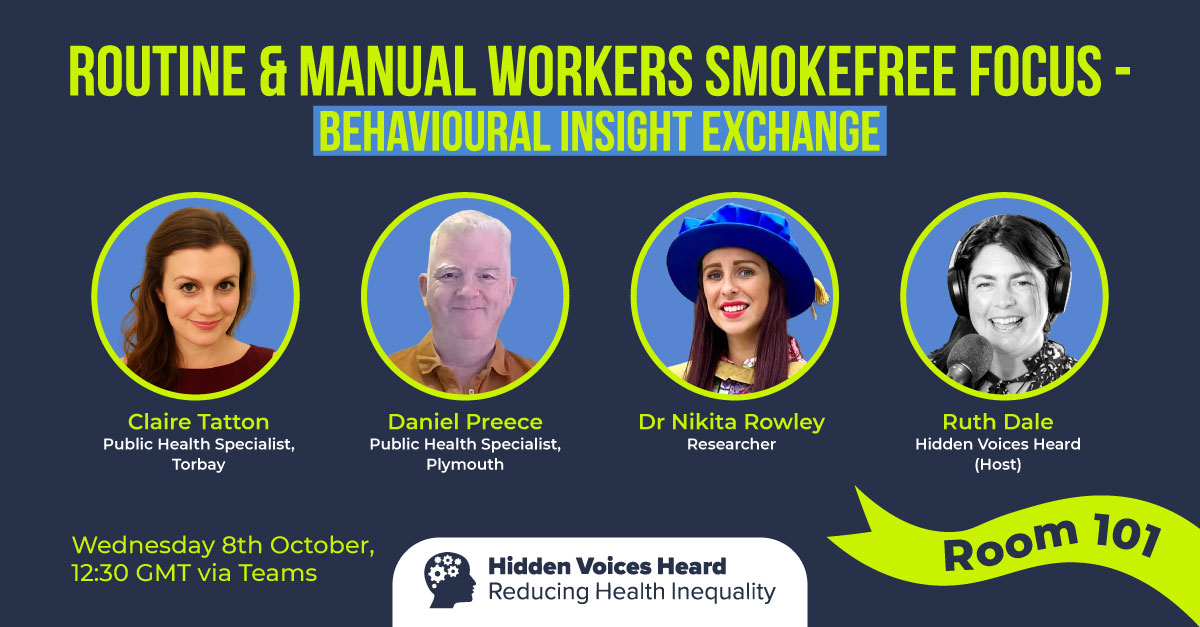
Three Things Health Communicators Need to Know This Stoptober
These insights may surprise you. Our Behavioural Insight Deep Dives show that some of the most common assumptions in smoking cessation comms don’t always land as intended.
Our 'Look, Listen, Learn' ™️ Deep Dives use a mixed-methods approach, combining a literature review with fieldwork conversations with routine and manual workers. The findings give us a timely reminder, as Stoptober begins, of what really matters in smoking cessation communications.
Here are three insights to take into your campaigns this October.
1. When “Support” Feels Like Judgement
Stop Smoking Services are centred around supporting people to quit. The intention is good. What we heard, however, is that the word support can put people off.
For many smokers in routine and manual roles, support felt like pressure, or being judged by someone who did not understand what it was really like to quit.
“I don’t care about people being involved in my quitting. I don’t want to talk about my quitting.”
“I would prefer to go out alone… when someone offers you their support and you don’t pull through, it can feel slightly more detrimental than if you’d done it yourself.”
Insight: If “support” feels like judgement, what language would resonate more? In health comms there is a strong desire to meet people where they are at. ‘My quit’ ‘My Way’ ‘tools’ ‘Independence” were all commonly used but so was…. ‘cold turkey’.... Which lead us on to Insight number 2.
And yes this may be controversial but…
2. Debunking “Cold Turkey” Can Backfire
National messaging often tells people that quitting cold turkey does not work. Yet several of those we spoke with had personal experience of quitting this way, sometimes for months or years, and saw those attempts as real successes.
Even if they later relapsed, they still valued the achievement of having quit.
Insight: Dismissing lived experience can erode trust. Campaigns that aim to debunk cold turkey (aka lived experience) need to tread carefully, or they risk alienating the very people they want to reach. If you truly mean to meet people where they are....welcome to the world of ‘cold turkey’.

3. Remember: Most People Are Not First-Time Quitters
For many, this is not their first attempt. People often think of themselves as quitters - someone who has already tried, sometimes many times before.
Implication: Framing campaigns as though it is everyone’s “first quit” misses an opportunity. Messaging that acknowledges experience “pick up where you left off” or “build on what you have already achieved” — may land better than “start fresh.”
Questions to Spark Change
- How could you frame quitting without defaulting to the word “support”?
- Can you acknowledge cold turkey experiences without undermining evidence?
- How could your Stoptober campaign recognise the reality that most people have tried before?
Want to increase Attendance? Join Us for More Behaviour Change insights

For more insights, please join Public Health colleagues who will be sharing their top insights from their fieldwork to increase access to their services.
Wednesday 8 October at 12.30 1.30pm
Register below - it's on Teams and will be recorded.
Join us on Teams
